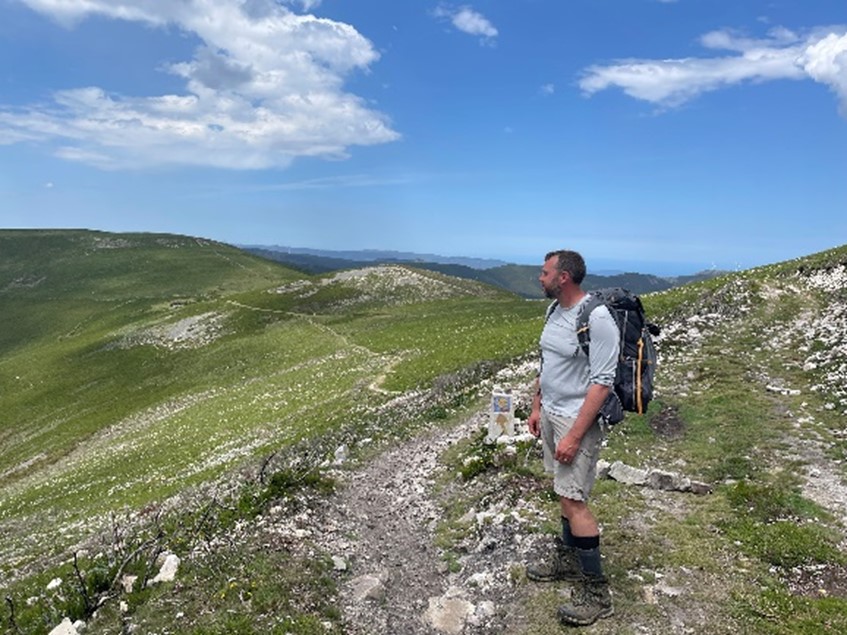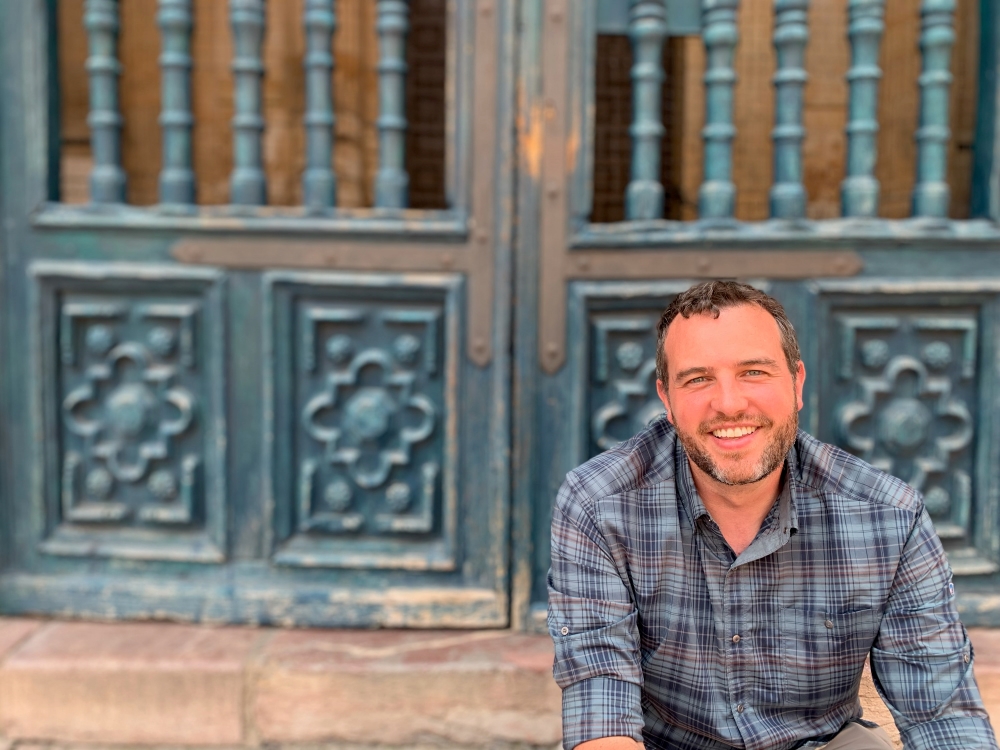Last summer, I took the first sabbatical in my 15-year ministry career. (Sabbatical tip #1: Pray that the Holy Spirit will not call you away from your congregation at year seven!) Although I’m no expert on the subject, my sabbatical was full of fun and adventure, and my return to ministry has brought renewal for both me and for my congregations. Think of this list below not as advice on what you should do, but as things I tried and would do again. Not tips for you, but tips from my experiences. I hope they help you to plan, inspire you to dream, and lead you to renewal.
Four Things I Would Do Again
1. Talk about sabbatical early and often. Advocate for yourself.
When I came to my congregation, there had not been a pastoral sabbatical in living memory. So as I negotiated my call agreement, I asked to add one. They weren’t sure, but I told them, “If we’re still working together in seven years, something has gone right, and a sabbatical is likely to make me stay longer. And, if we’re not still working together in seven years, you won’t have to worry about it.”

Three years before my sabbatical was due to start—on one of those summer days when the only work you can bring yourself to do is penciling in the rest of your vacation days or Googling retreat centers in beautiful places—I wrote a proposal detailing my sabbatical plan, including how my work would be covered, how much it would cost, what would be needed from the congregation, and a timeline for completing everything.
The next month, I presented it to the Church Council, who I’m sure were wondering why we were taking up the subject 36 months in advance. But discussing sabbatical that far out made the subject less threatening. It lowered the anxiety and let us make a plan before we were feeling the pressure of finding a supply pastor and planning a three-month leave.
Then, as the time for my sabbatical got closer, we all had a detailed plan to reference and revisit, and I had a call agreement and Council minutes to point to if anyone got cold feet. (Which, wonderfully, they did not.)
2. Fight tyranny...of choice.
One of the hardest parts of planning my sabbatical was narrowing down the infinite possibilities for how to use this gift of time into a single, actionable plan that I was certain to follow. It was like the challenge of deciding where to go to dinner with your significant other x1,000,000!
Early in our marriage, my wife and I invented what we call the “Bowl Game” to help us plan date nights. In the Bowl Game, each person gets three to four slips of paper on which they write different ideas for what to do; whatever appeals to them. Then, we put the ideas in a bowl and draw them out one-by-one. Supposedly, the last idea we pick is what we choose to do, but it never ends up that way.
Instead, the game is just a trick for getting us past the stuck feeling of needing to find the one perfect thing to do with our time and show us that there are many plans we might enjoy. It helps us come up with lots of ideas fast, and then we can choose our favorite or mix and match.
So, when it came time to plan my sabbatical, our family did the same thing. I cut up slips of paper and left them out in the living room with some pens and a jar. Anytime my wife, daughter, or I had an idea, we wrote it down and dropped it into the bowl. Then, when it was time to start planning, we drew them out and talked about what ideas excited each of us most. We stopped trying to plan the perfect three months, and instead focused on planning one of many great sabbaticals we could look forward to.
3. Consider what you’re resting from.
“Sabbatical means rest. But what are you resting from?”
As I prepared for my leave, colleague after colleague reminded me, “Sabbatical means rest.” Or more pointedly, “When will you rest?!” Or practically, “The Lilly Foundation will want you to rest!”
These concerns came in part from my plans to complete three pilgrimages totaling almost 300 miles over the course of my sabbatical, and in part from all the travel I packed around those pilgrimages. In 91 days, I slept in 40 different beds, and according to my app, I walked over 600 miles. And it was so restful!
I live in a house attached to my church. My daughter’s school is across the street. Several weeks can go by when I don’t leave this corner. I spend hours each day in my office, sitting at a computer. So I needed a different kind of rest.

I rested from sitting. I rested from screens. I rested from being inside. I rested from seeing the same things every day. Sabbatical means rest. But what are you resting from?
4. Save the reflection for your return.
When I left on sabbatical, I imagined the next 13 weeks were going to be an intensive time of introspection and self-examination, delving deeply into the big questions about my life and my vocation, and listening intently for divine guidance on the next chapter in my ministry. And...they weren’t. A few weeks in, I started to worry. I’d received no divine guidance. I answered no big questions. I was, if anything, less introspective than normal.
“I stopped worrying, and gave myself permission to let my “meaning-making” muscles rest and just experience things without trying to make sense of each moment.”
In place of all that deep diving, I was outside hiking, or birding, or spending time with friends. I was living. And it was great! I realized that, as a pastor, I spend so much time in reflection. I am constantly examining my life and listening for divine guidance. I’m always in search of the meaning of each moment, which can hopefully be spun into a sermon or devotion. And on sabbatical, I didn’t need to do that. I stopped worrying, and gave myself permission to let my “meaning-making” muscles rest and just experience things without trying to make sense of each moment.
I did keep a running list of “aha” moments, questions, and significant stories from that time, and when I came home, I found myself a spiritual director and got to work. The months after my sabbatical were some of the most spiritually fruitful and exciting times since seminary. There was so much to dig into, and I had the energy to dig into it.
Most churches require that pastors commit to staying in their current position for at least a year after they return from sabbatical, which means you have built in time for discerning the lessons of your sabbatical once you’re back!
That’s what I did, and I had an incredible time. But my final piece of advice for your sabbatical: don’t take anyone else’s advice! Or take it lightly. Don’t give yourself any rules that aren’t absolutely necessary. Follow your instincts. Take some chances. Make the time for whatever you need! And may the God of Holy Rest bless it and bring you back to work refreshed.

The Rev. Amlin grew up in Indiana and Ohio and holds a Master of Divinity from the University of Chicago and a Bachelor of Fine Arts in Dramatic Writing from New York University. He is a part of the Next Generation Leadership Initiative. He is also a monthly contributor to the United Church of Christ “Still Speaking Daily Devotional.
